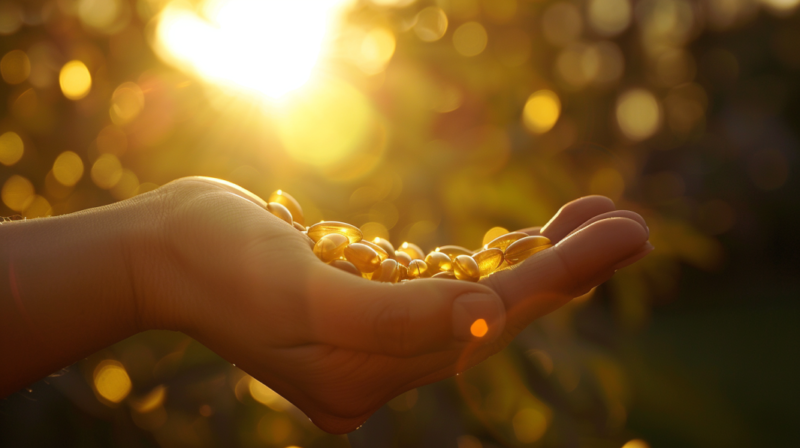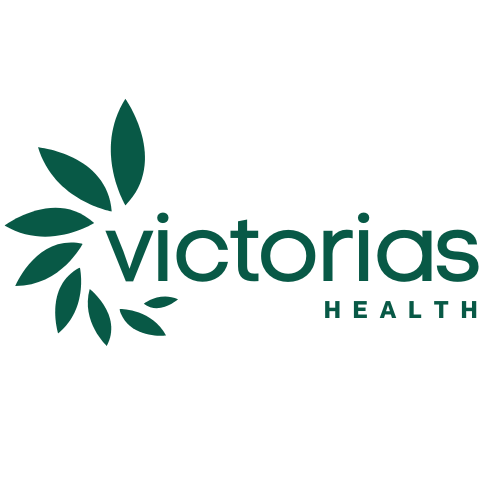Yes, vitamin D3 can cause constipation when taken in excessive amounts, primarily due to its role in calcium absorption and its impact on digestive health.
If you’re experiencing digestive issues after starting vitamin D3, it’s worth considering the possibility that your dosage may be too high.
Often associated with maintaining bone health and boosting immunity, vitamin D3 is vital for overall well-being.
However, too much of it can lead to unintended consequences like constipation, as noted by health experts.
It’s crucial to balance your vitamin intake to avoid these uncomfortable side effects.
Vitamin D3 and Its Functions

Vitamin D3, also known as cholecalciferol, is a fat-soluble vitamin. It plays a vital role in your body.
Your skin produces vitamin D3 when exposed to sunlight. This makes sunlight a natural source of this essential nutrient.
Key Functions of Vitamin D3
- Calcium Absorption: Vitamin D3 enhances the absorption of calcium in the gut, helping in the formation and maintenance of healthy bones and teeth.
- Immune System Support: It plays a crucial role in modulating the immune system, which helps your body defend against pathogens.
- Mood Regulation: Research shows that vitamin D3 contributes to mood regulation and can reduce the risk of depression and other mood disorders.
Sources of Vitamin D3
- Sunlight: Spending time in the sun is the most natural way to boost your vitamin D3 levels.
- Diet: Foods like fatty fish, egg yolks, and fortified products such as milk and cereals provide vitamin D3.
- Supplements: Vitamin D3 supplements can help if you have difficulty meeting your needs through sunlight and diet.
Benefits of Adequate Vitamin D3 Levels
Maintaining proper levels of vitamin D3 is essential for various health aspects. It supports bone health, boosts your immune system, and can improve your mental well-being.
Factors That May Lead to Constipation When Taking Vitamin D3
While beneficial, too much vitamin D3 can lead to complications. Excessive intake may cause symptoms like constipation, often due to increased calcium levels in your blood, as noted in various sources.
Dosage Considerations

High doses of vitamin D3 can lead to elevated calcium levels in your blood, known as hypercalcemia. This condition may contribute to digestive problems, including constipation.
When checking vitamin D supplements, it’s important to understand that IU (International Units) on vitamin labels indicate the potency of the vitamin, which can affect your total intake.
Monitoring your daily intake is crucial. The recommended daily allowance for most adults is between 600 to 800 IU, but some people take much higher doses. If you take more than the upper limit of 4,000 IU without medical supervision, you might experience symptoms like constipation, nausea, and stomach pain.
It’s advisable to consult with your healthcare provider to determine the appropriate dosage, especially if you suspect your vitamin D levels are low.
Interactions with Other Supplements and Medications
Vitamin D3 supplementation can interact with other supplements and medications, which may contribute to digestive issues. For instance, calcium supplements are often taken alongside vitamin D3 to enhance absorption. However, excessive calcium can lead to constipation.
Iron supplements are another common culprit. When taken with vitamin D3, the combination may increase the likelihood of constipation. Certain medications, like diuretics and corticosteroids, can also affect how your body processes vitamin D3 absorption.
Dehydration and Dietary Implications

Dehydration can amplify constipation when taking vitamin D3. Adequate water intake is vital for preventing constipation. If you are not drinking enough water, the vitamin D3 absorption process can slow down, leading to harder stools and digestive discomfort.
Your diet also plays a crucial role. A lack of fiber, combined with high vitamin D3 intake, may lead to constipation. Foods rich in fiber, such as fruits, vegetables, and whole grains, can help counteract this side effect. Monitoring your diet and hydration levels will improve your digestive health when taking vitamin D3.
Potential Causes of Constipation
- Diet: Inadequate fiber intake is a major contributor. Ensure your diet includes fruits, vegetables, whole grains, and legumes.
- Hydration: Dehydration can lead to hard stools. Drink plenty of water to maintain optimal digestive function.
- Medications and Supplements: Some medications and supplements, including certain calcium and iron supplements, can cause constipation. For instance, excess vitamin D from supplements can impact digestive health and lead to constipation.
- Lack of Physical Activity: Regular exercise helps stimulate intestinal activity. Sedentary lifestyles can slow down bowel movements, leading to constipation.
- Health Conditions: Conditions such as irritable bowel syndrome (IBS), hypothyroidism, and diabetes can contribute to constipation. Consult with a healthcare provider for appropriate management.
- Stress: Psychological factors like stress and anxiety can disrupt your digestive system. Practice relaxation techniques such as mindfulness or yoga to improve bowel regularity.
- Changes in Routine: Traveling or changes in your usual routine can affect your bowel movements. Try to maintain a regular schedule for meals and bathroom visits.
- Aging: Aging can slow down the digestive system. To counter this, increase your fiber intake and stay physically active.
Connection Between Vitamin D3 and Digestive Health

Vitamin D3, a fat-soluble vitamin, requires dietary fats for proper absorption. Your digestive system absorbs this vitamin in the small intestine with the help of bile acids produced by the liver. This absorption process can be influenced by factors such as the health of your intestines and the presence of other nutrients.
Issues like Crohn’s disease or celiac disease can hinder the absorption of vitamin D3. Inadequate absorption can lead to deficiencies, impacting overall health. Additionally, the liver and kidneys must convert vitamin D3 into active forms that the body can use, a process that also depends on the efficiency of your digestive system.
Scientific Research on Vitamin D3 and Bowel Movements
Various studies have examined the relationship between vitamin D3 levels and bowel health. Research has shown a significant link between vitamin D deficiency and gastrointestinal disorders such as irritable bowel syndrome (IBS).
For example, one study found that 82% of IBS patients had vitamin D deficiency compared to 31% of control subjects.
Alternatives to Vitamin D3 Supplements
Dietary Sources of Vitamin D

Certain foods are rich in vitamin D and can help you maintain optimal levels. Fatty fish such as salmon, mackerel, and tuna are excellent sources. You can also consume fortified foods like milk, orange juice, and cereals. Egg yolks and cheese provide smaller amounts but are good additions to a balanced diet.
Mushrooms, especially those exposed to ultraviolet light, can also supply significant vitamin D. Adding a variety of these foods to your routine can help you avoid the need for supplements.
Lifestyle Changes for Natural Vitamin D Absorption
Sun exposure is one of the most effective ways to boost your vitamin D levels. Spending about 10-30 minutes in the midday sun several times a week can be beneficial. Your skin naturally produces vitamin D when exposed to sunlight.
Wearing sunscreen and protective clothing can limit this production, so aim for short periods without these barriers while avoiding overexposure. Living in sunny climates or spending more time outdoors can enhance your natural vitamin D absorption significantly.
Regular outdoor activities such as walking, gardening, or playing sports can increase your sun exposure and, consequently, your vitamin D levels. By integrating these habits, you can support your body’s vitamin D needs naturally.

